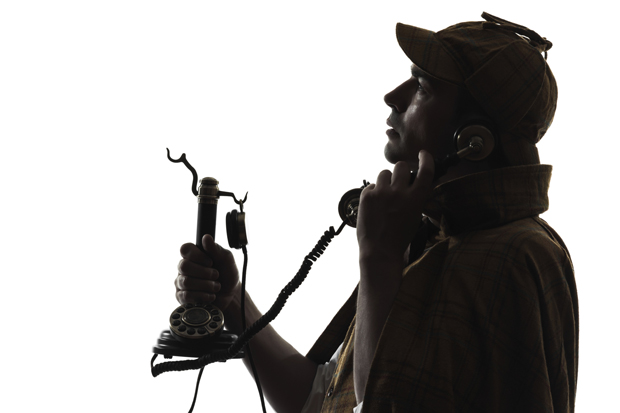There’s a danger that in what follows your columnist may seem to be recommending an attitude. Please don’t think that. It’s true that I would never shop a friend for drink-driving — but frankly I doubt I’d shop a friend for murder. This column isn’t about what we should do if we know a friend drink-drives — responses will be various and variously arguable — but about shock at my own serious misreading of my countrymen.
I was tooling along in our Mini on the first Saturday of the year, with BBC Radio 2 playing. It was Graham Norton’s fizzy and engaging morning show, where a regular feature is his ‘Grill Graham’ slot in which listeners contact him with personal, social or moral dilemmas. Mr Norton may suggest his own answers, while quoting advice from other listeners too.
‘Karen’ had asked what she should do about her friends, a couple who come to dine (with others) and who then drive home after drinking too much. This makes everyone uncomfortable; and the driving couple (it’s the man who drives) know this. His wife insists he’s safe at the wheel.
You’ll be pondering your own advice already. I began pondering mine; and wondering what Graham and his listeners might suggest. I felt confident in my guess that one of two (a minority) would plump for the response that it was none of their business; probably most would propose having a serious word with the couple; our own Dear Mary might suggest underlining the seriousness by telling them she’d henceforward be sending (and paying for) a taxi to fetch and return; one or two of the sternest listeners might suggest threatening a withdrawal of future invitations; and it was even possible a listener or two would propose calling the police.
How wrong I was. Most of them urged calling the police. If I include Mr Norton’s implied view, at least eight out of 13 responses were to shop the drinker. Some proposed doing this openly, others preferred anonymity. Most thought it was not enough to stop him drink-driving from these social engagements only, because (as Graham put it) that wouldn’t stop him doing it on other occasions. ‘I don’t think telling [him] is the answer,’ someone thought. ‘He will be doing it at other times. He needs to be stopped — tell the police and do it now.’
In short it was (people thought) the clear duty of anyone who knew him to see that his life, not just his behaviour with these friends, was corrected. ‘If he’s not having a drink with you he’s having a drink with someone else,’ advised one respondent.
The idea that although their friend’s behaviour was dangerous and wrong, his friends should go no further than tell him so, was not canvassed by a single caller. Listeners didn’t even seem to think there was a dilemma here. ‘Imagine how you’d feel if he killed someone on the way home,’ said one: ‘say you won’t invite him again?’
Another recommended an anonymous texting facility to alert the police once the man had driven off (it later transpired that such a facility is not available at present). ‘It’s not about him, it’s about other people,’ said a third. Another said his brother had been disabled in a drink-driving accident. End the friendship, said many: who’d want to be friends with someone like that?
Graham Norton summed up. ‘Basically everyone is saying the same thing and rightly so. That text service, that’s really interesting [he quoted a number]. You text the word “drink” and the details of the vehicle.’
I was astonished both at the ferocity and the unanimity of the responses. Plainly I have misread the temper of the British mind on this issue. Either people are more angrily disapproving of this particular offence than I’d realised, or they’re more willing to grass on friends whatever the offence; or both.
Perhaps I shouldn’t use the word ‘grass’ lest it imply judgment, but I know no neutral expression in our language. ‘Inform on’, ‘tell on’, ‘tell tales’, ‘squeal’ and ‘shop’ have all acquired a negative connotation. When I say I’ve absorbed a cultural hostility to the idea of doing this, I say so not to recommend my own attitude, but to explain my surprise that I should feel it so strongly and instinctively — and yet discover that my fellow citizens seem to feel it not at all.
As a hitch-hiker in America, I was once given a lift in a van where a fellow passenger confided in me that he intended to murder the chap who had been sleeping with his wife. He showed me the gun. It honestly never occurred to me to call the police after I’d left the van.
At 13 in Africa, when I was going through an intensely puritanical phase, I was stirred into righteous fervour by a sermon from our schoolmaster about the evils of a wave of shoplifting that going on, some of the offenders being my classmates. I don’t now know why — I don’t seem to recognise the boy I was — but, inspired by this talk, I told my teacher the name of a boy who was stealing ice lollies from the nearest delicatessen.
The boy’s name was Quentin, a good-natured chap, and I cannot now meet another Quentin without an internal blush. I greatly dislike the boy who shopped him and wish it were not me. I still take a serious view of shoplifting (I come from a family of shopkeepers) and am still made angry when people dismiss it as hardly a crime — but still… whatever was I thinking of?
I describe here my own more mature response without either commending it or resiling from it; but only to express my great astonishment that I should feel it so strongly, yet find no echo at all last Saturday among a nation I think of as my own. We cannot be as alike as I had thought, me and my compatriots.
Got something to add? Join the discussion and comment below.
Get 10 issues for just $10
Subscribe to The Spectator Australia today for the next 10 magazine issues, plus full online access, for just $10.
You might disagree with half of it, but you’ll enjoy reading all of it. Try your first month for free, then just $2 a week for the remainder of your first year.















Comments
Don't miss out
Join the conversation with other Spectator Australia readers. Subscribe to leave a comment.
SUBSCRIBEAlready a subscriber? Log in